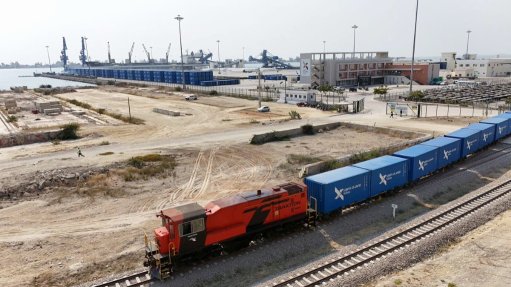Staggering news illiteracy
Achraf Hakini, a defensive midfielder for French football club Paris Saint-Germain, should have notable name recognition in a football-loving country such as South Africa, given his exploits at the last FIFA World Cup in Qatar, where he starred for the national squad of his native Morocco.
Hakini has been trending on social media platforms of late and has also been receiving acres of space in serious publications. But this surge in media visibility has nothing to do with his prowess on the soccer pitch. It was sparked by an April 13 tweet by a Cote d’Ivoire-based online publication that claimed that Hakini’s wife, who is reportedly suing for divorce, was claiming half his fortune, estimated at $24- million. But lo and behold, the tweet continued, the wife walked away empty handed, having been told that all this moola is registered in the name of the 24-year-old’s mother.
Within a couple of days, the message had been retweeted more than 15 000 times, liked about 100 000 times and republished in many media outlets the world over.
But the thing is, the message was fake, and it’s mind-boggling how so many people, including the journalists who republished it, couldn’t see it for what it was – a big lie. A major give-away was the claim that Hakini’s mother receives his earnings and is the stewardess of his wealth. As someone has pointed out, in all the European countries where he has plied his trade – Spain, Germany, Italy and France – one can marry either in or out of community of property. Had Hakini and his wife married under the former, having his assets in his mother’s name would thus have amounted to hiding the assets from his spouse, which is a fraudulent act. Assuming they married out of community of property, why would she have sought to lay her hands on more than half his wealth, knowing she wasn’t entitled to it?
That this twisted tweet was swallowed hook, line and sinker by so many people is symptomatic of the low levels of news literacy among journalists and ordinary news consumers alike. This is a cause for concern in the current media environment, where anyone with access to the Internet can peddle any disinformation or misinformation.
Let me unpack the term ‘news literacy’ – it is knowledge of the personal and social processes by which news is produced, distributed and consumed. Armed with this knowledge, one will most likely be able to tell whether what is purported to be news is indeed legitimate news.
The tragedy is that journalism schools in this country and elsewhere are not doing a good job at all when it comes to equipping future journalists with the skills to spot fake news and therefore refrain from passing it on.
This is one of the key findings of a 2019 study conducted by journalism academics at the University of Technology Sydney, in Australia. The study analysed the undergraduate journalism curricula of two top universities in South Africa – which shall remain anonymous – and of one university in each of Egypt, Kenya, Uganda, Zimbabwe, Jordan, Lebanon and Palestine. None of the nine programmes offered a standalone module on fake news.
While it could be that fake news is incorporated into some of the modules on offer, the academics argue that teaching fake news as a module on its own would highlight the journalistic impediments it is causing. They are particularly worried about the insufficient attention that journalism schools are paying to fake news because “journalism education is a first step towards addressing the current media environment of fake news for future journalists, especially in parts of the Global South”.
Unless something is done, we are going to be liking fake tweets for a long time to come.
Article Enquiry
Email Article
Save Article
Feedback
To advertise email advertising@creamermedia.co.za or click here
Comments
Press Office
Announcements
What's On
Subscribe to improve your user experience...
Option 1 (equivalent of R125 a month):
Receive a weekly copy of Creamer Media's Engineering News & Mining Weekly magazine
(print copy for those in South Africa and e-magazine for those outside of South Africa)
Receive daily email newsletters
Access to full search results
Access archive of magazine back copies
Access to Projects in Progress
Access to ONE Research Report of your choice in PDF format
Option 2 (equivalent of R375 a month):
All benefits from Option 1
PLUS
Access to Creamer Media's Research Channel Africa for ALL Research Reports, in PDF format, on various industrial and mining sectors
including Electricity; Water; Energy Transition; Hydrogen; Roads, Rail and Ports; Coal; Gold; Platinum; Battery Metals; etc.
Already a subscriber?
Forgotten your password?
Receive weekly copy of Creamer Media's Engineering News & Mining Weekly magazine (print copy for those in South Africa and e-magazine for those outside of South Africa)
➕
Recieve daily email newsletters
➕
Access to full search results
➕
Access archive of magazine back copies
➕
Access to Projects in Progress
➕
Access to ONE Research Report of your choice in PDF format
RESEARCH CHANNEL AFRICA
R4500 (equivalent of R375 a month)
SUBSCRIBEAll benefits from Option 1
➕
Access to Creamer Media's Research Channel Africa for ALL Research Reports on various industrial and mining sectors, in PDF format, including on:
Electricity
➕
Water
➕
Energy Transition
➕
Hydrogen
➕
Roads, Rail and Ports
➕
Coal
➕
Gold
➕
Platinum
➕
Battery Metals
➕
etc.
Receive all benefits from Option 1 or Option 2 delivered to numerous people at your company
➕
Multiple User names and Passwords for simultaneous log-ins
➕
Intranet integration access to all in your organisation


















